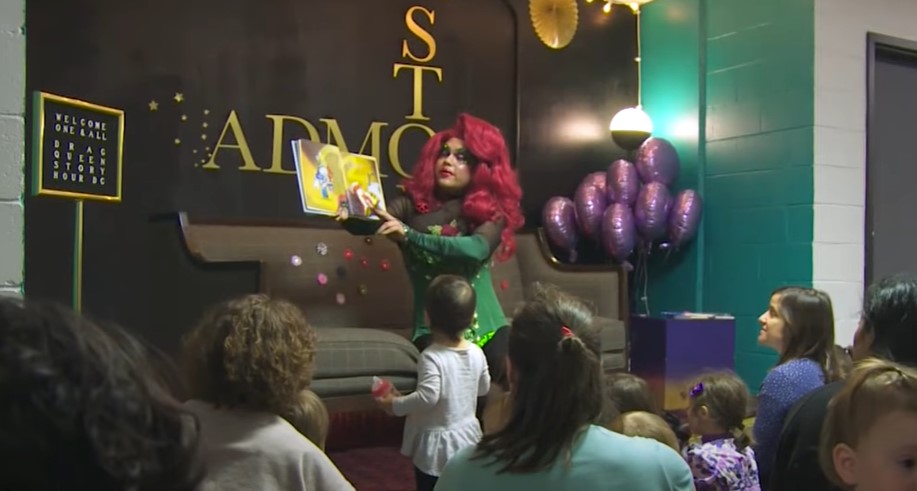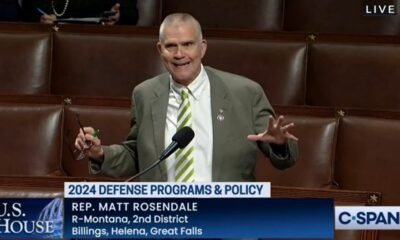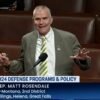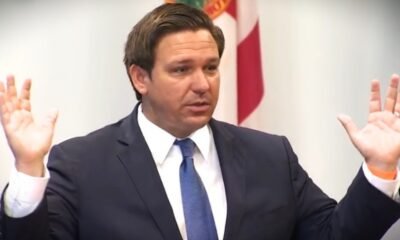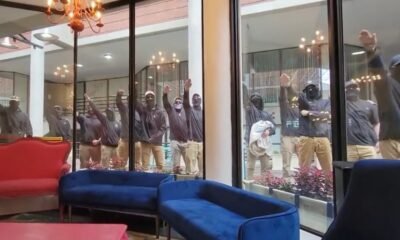Montana has become the first state to pass a law specifically prohibiting individuals dressed in drag from reading books to children in public schools and libraries. The legislation is part of a series of bills aimed at curtailing LGBTQ+ rights, not only in Montana but in other states as well.
Sasha Buchert, an attorney from the national organization Lambda Legal, which focuses on protecting the civil rights of the LGBTQ+ community and those living with HIV and AIDS, criticized the new law, stating that it raises constitutional concerns and stifles an initiative that provides support and comfort to transgender youth. Lambda Legal believes this to be the first bill of its kind to directly outlaw drag reading events.
The bill, supported by over half of the Republican-controlled legislature, was swiftly enacted after Governor Greg Gianforte, a Republican, signed it into law on Monday.
Originally, the bill sought to prohibit minors from attending drag performances, defining them as shows that incite “lustful thoughts.” However, it was later revised to forbid minors from attending sexually explicit or obscene performances on public property.
Furthermore, the bill was amended to specifically prohibit drag reading events in schools and libraries that receive public funding. The legislation defines these events as those where a drag king or drag queen reads children’s books to minors, without requiring any sexual content to be present in order to be banned.
The frequency of such events in Montana’s public schools and libraries remains unclear. In 2022, drag reading events took place at ZooMontana in Billings and at a bookstore in downtown Helena, both of which faced protests but would not be affected by the new law. Another event at a Bozeman bookstore also drew protesters last weekend.
Julie Yard, a drag performer with The Mister Sisters in Great Falls, who helps organize drag reading events, stated that she has never been asked to coordinate such an event in any public school, nor in any school for that matter. Nonetheless, between 6 to 10 events are scheduled across the state in the upcoming months.
Yard explained that drag story hours are often planned during the summer and often coincide with Pride celebrations. However, organizing such events in the current political climate necessitates developing safety measures and collaborating with local law enforcement in case of protests.
Despite the opposition, the drag reading events will persist, as Yard believes they demonstrate the necessity of providing a welcoming community for vulnerable individuals, especially children, who need acceptance and a sense of safety.
Similar attempts to ban drag reading events have also surfaced in Florida and Tennessee, although their wording requires the performances to be sexually explicit, leaving room for interpretation. Both bills are currently facing legal challenges.
In Tennessee, a federal judge temporarily blocked a bill in March that aimed to restrict drag performances in public spaces or in the presence of children. The judge agreed with a group that filed a lawsuit against the statute, claiming that it violated their First Amendment rights. U.S. District Judge Thomas Parker ruled that the state had not provided a convincing argument for the necessity of the law, and he considered it to be excessively vague and broad.
In Florida, a drag show restaurant has filed a legal challenge against the ban, arguing that it infringes on the establishment’s First Amendment right to free expression. The restaurant had been hosting “family-friendly” drag shows on Sundays, but the new law required them to exclude children from attending. Governor Ron DeSantis has recently signed other bills that prohibit gender-affirming medical care for minors and restrict discussions about personal pronouns in schools.
Governor Gianforte has previously signed a bill in Montana banning gender-affirming care for transgender minors. During the legislative session, Democratic Representative Zooey Zephyr, a transgender lawmaker, was expelled from the House floor after protesting against Republican lawmakers
